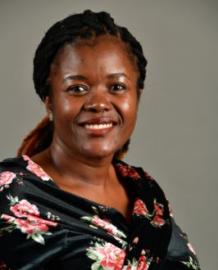
A breakthrough in the development of the upstream petroleum industry has the potential to propel the South African economy to greater heights.
This is according to Deputy Minister of Mineral Resources and Energy Dr Nobuhle Nkabane who was speaking during the inaugural Energy Conference hosted by the South African National Energy Development Institute (SANEDI) in Johannesburg.
“As the department…we are of a firm view that a breakthrough in the development of the Upstream Petroleum Industry will catapult our economy to greater heights.
“Hence, we are particularly pleased with the recent approval by Parliament of the Upstream Petroleum Resources Development [UPRD] Bill which seeks to separate petroleum provisions from mineral provisions and address issues that are pertinent to the upstream petroleum sector,” she said.
According to the Deputy Minister, a report by the African Energy Chamber has predicted that gas demand is expected to increase and outstrip supply.
She said this will give South Africa an opportunity to tap into that market.
“In view of the [chamber’s] prediction, the approval of the UPRD Bill is indeed a major step towards the immediate development of South Africa’s Upstream Petroleum Industry which will enable our country to become a major player in the production and supply of oil and gas.
“In real terms, this tells us that there is no better time than now for our country to invest in the exploration and exploitation of the natural resources that it is well endowed with, including oil and gas,” Nkabane said.
The Deputy Minister told conference delegates that in light of South Africa's challenges, “we need all” sources of energy.
“Fact of the matter is that, for South Africa to effectively address the triple challenges of poverty, unemployment, and inequality, it will require a more rapid and inclusive economic growth which will need all energy technologies to play a significant role. A developing nation like ours, does not have the luxury to choose between these energy technologies.
“We appreciate that any transition to a low carbon future will have an impact on the use of fossil fuels. However, in view of the fact that 82% of energy sources in the world are from fossil fuels, this conference must help us determine how best South Africa can manage its transition, given its endowment with these fossil fuels,” Nkabane said.
She emphasised that the National Development Plan 2030 enjoins government to implement a mix of energy sources to diversify South Africa’s energy mix to meet growing electricity demand.
“In order to realise this NDP goal…the Integrated Resource Plan (IRP) 2019, identified a diversified energy mix required to meet the country’s expected electricity demand growth.
“The mix, which is inclusive of Solar PV, Wind, Coal, Nuclear, Gas, Hydro, and Battery Storage, is necessary for the country to guarantee reliable energy supply to society, and ultimately eradicate energy poverty in our country.
“On the one hand, the mix presents us with an opportunity to diversify South Africa’s electricity mix by producing distributed generation and provide off-grid electricity, whereas on the other hand, it guarantees us baseload energy which is essential for industrialisation,” Nkabane said. – SAnews.gov.za


